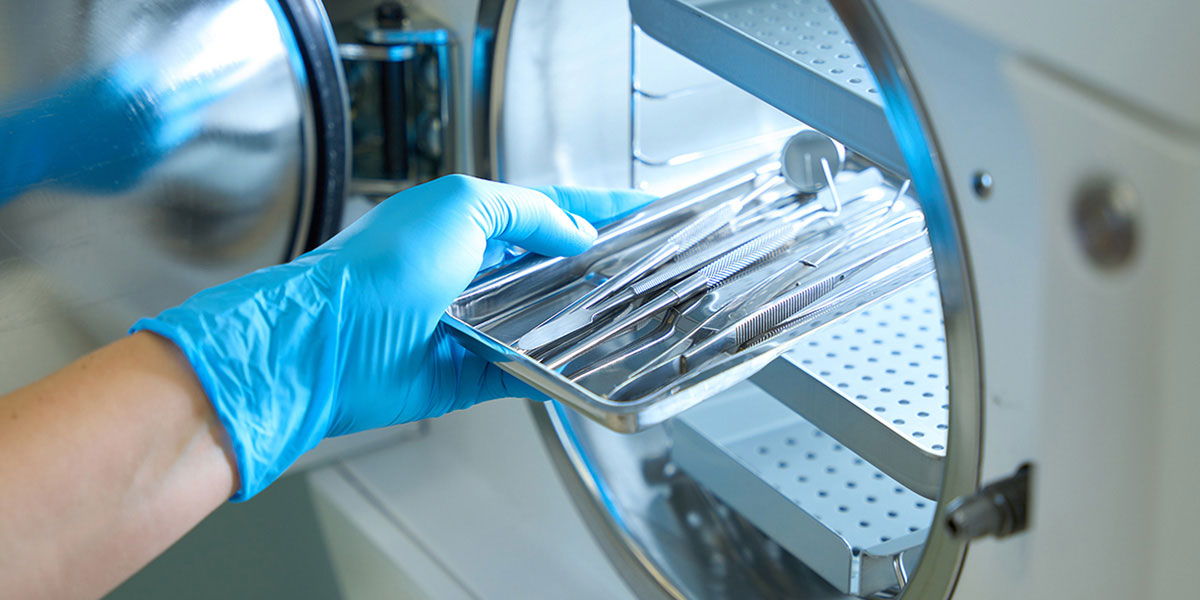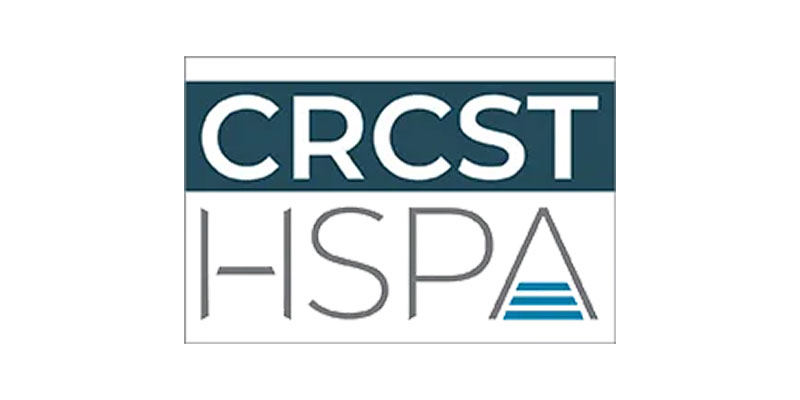
Sterile Processing Technician
Program Overview
Sterile Processing Technicians (SPT), also known as Central Service Technicians or Certified Sterilization Technicians, play a critical role in preventing infection by sterilizing, cleaning, processing, assembling, storing, and distributing medical supplies— and now is an excellent time to train for your sterile processing technician certification.
With the support of an instructor, you will learn all the necessary steps required to perform the duties and tasks of an SPT. Our online sterile processing course covers essential topics such as medical terminology, including vital systems like the musculoskeletal and cardiovascular systems, as well as the lymphatic and immune systems, respiratory systems, digestive systems, urinary systems, and nervous systems.
Additionally, you will learn the details and expectations within the concepts of the role and gain proficiency in understanding the step-by-step requirements of the sterilization process, like sterilization techniques, inventory management, and infection control.
Job Outlook
Salary.com reports that as of September 12, 2024, the average annual pay for Sterile Processing Technicians in the U.S. is $40,390. However, the salary range can go up to $50,038 or down to $32,175. According to the BLS, the mean annual salary for Sterile Processing Technicians is $47,410 per year.
Frequently Asked Questions
Info Accordions
According to Indeed.com, a certified sterile processing technician (SPT) plays an important role in indirectly providing patient care. They carefully prepare, install, assemble, clean, and sterilize all the health care and laboratory equipment used in medical exams, surgeries, and other clinical procedures. They also ensure strict adherence to sterilization processes and that instruments, equipment, and supplies are safe for reuse across patients daily.
An SPT plays an integral role in ensuring the success of surgeries. Sterile processing technicians usually work in clinics, hospitals, doctor's offices, and other settings that use medical equipment.
According to Indeed.com, a certified sterile processing technician (SPT) regularly performs several duties, including:
- Preparing and delivering clean and sterilized instruments and equipment necessary for medical examinations, surgeries, medical carts, and clinical procedures
- Sterilizing, wrapping, organizing, and preparing medical equipment and surgical instruments into instrument trays for use during clinical procedures
- Laying out surgical gloves and gowns before each medical procedure
- Collecting and manually cleaning used and contaminated medical equipment, supplies, and instruments for sorting and decontamination
- Preparing and packing decontaminated medical tools and supplies for sterilization
- Operating and monitoring sterilization equipment
- Examining supplies meticulously to ensure their cleanliness
- Checking and reporting any problems or issues with the sterilization equipment to surgeons or supervisors and requesting replacements
- Maintaining records of sterilization procedures, equipment maintenance, sterilized items and supplies
- Reordering medical and surgical supplies, controlling the inventory, and checking the expiration dates of products
- Removing medical waste and disposing of them appropriately
ZipRecruiter also notes that SPTs use specialized equipment, such as an autoclave, to ensure that all surgical instruments and materials are sterile and safe for the patient. They review inventory and assess equipment and materials to prepare the surgical suite for each procedure.
Yes. This course includes two, optional, Test-Out Exam features that will allow you to test out of content and graded assessments if your score demonstrates the level of mastery required (80%). It does not count toward your overall score in this course if you do not achieve the minimum score required for mastery. Please note: Third party funded students may not be eligible.
Yes. This course prepares you to sit for the Certified Registered Central Service Technician (CRCST) exam offered by the Healthcare Sterile Processing Association (HSPA). You will receive vouchers for the exams after successfully completing the course, coursework, and your financial obligation.
This course is open enrollment, so you can register and start the course whenever you are ready. Access to your course can take 24-48 business hours.
Although the exact amount of time can vary, it typically takes nine months to two years to become a medical assistant, depending upon the program and time you have to commit. For example, this course allows you up to 12 months of access to complete the required training.
Course Objectives
- Define the sterile processor role, responsibilities, professional skill set, and communication expectations (including accurate use of medical terminology and anatomy) required in the central processing and surgical services departments
- Identify sterile processing regulations and standards provided by regulatory agencies and professional associations to ensure workplace safety, infection prevention, and proper support for the ancillary departments
- Discuss basic procedures and best practices for each phase of sterile processing, including decontamination, inspection, preparation, and sterilization of medical instruments and supplies
- Review sterile storage considerations, guidelines, concerns, and common quality assurance procedures in the sterile processing department
- Understand the importance of following procedures to care for loaner instruments and manage inventory while using information management systems
- Describe how to adhere to compliance when handling documentation and maintaining records
- Explain the importance of effective communication, human relations, and personal development and how improving these skills can impact the career of a sterile processing technician
Prerequisites and Certification Requirements
Hardware Requirements:
- This course can be taken on either a PC, Mac, or Chromebook.
Software Requirements:
- PC: Windows 10 or later.
- Mac: macOS 10.6 or later.
- Browser: The latest version of Google Chrome or Mozilla Firefox are preferred. Microsoft Edge and Safari are also compatible.
- Microsoft Word Online
- Adobe Acrobat Reader.
- Software must be installed and fully operational before the course begins.
Other:
- Email capabilities and access to a personal email account.
The instructional materials required for this course are included in enrollment.
The following digital textbook for the Medical Terminology course is accessed via links in the course lessons:
- Comprehensive Medical Terminology for Health Professions, 1st Edition (eBook)
The following will be shipped to you approximately 7-10 business days after enrollment in Sterile Processing Technician:
- Sterile Processing Book Set, 9th Edition, comprised of the Sterile Processing Technical Manual, 9th Edition, and the Sterile Processing Workbook, 9th Edition, by HSPA (formerly IAHCSMM)
The following digital textbook for the Sterile Processing Technician course is accessed via links in the course lessons:
- Surgical Instrumentation (eBook)
The following materials will be shipped to you once the Release Agreement has been signed and returned:
- Surgical Instrumentation Kit (includes 10 items, intended for practice purposes only)
Prerequisites:
To sit for the national certification exam, candidates must have a high school diploma or equivalent; it is recommended that you have this before enrolling in this program.
Certification Requirements:
Full CRCST Certification
- Provide 400 hours of hands-on experience during the previous five years, preceding the application.
Provisional CRCST Certification
- Provide 400 hours of hands-on experience within six months of passing the certification exam.
Instructors
Janice Brownlee
Janice "Jan" Brownlee has been a Certified Surgical Technologist (CST) for 43 years and has worked in all sizes of hospitals, including surgery centers. Jan worked in a sterile processing department in the instrument room and sterile supply areas. While working in the operating room, she scrubbed all services, with cardiothoracic, vascular, and orthopedics being her favorites.
Jan also had the opportunity to work for a private group of cardiothoracic surgeons and expand her knowledge and skills even more. Working as a surgical first assistant was the highlight of her career. She has continued her career path by teaching surgical technology and sterile processing at a local community college and enjoys watching her students learn and grow.
Naydeen Pollak
Naydeen Pollak has been a Certified Surgical Technologist for 37 years, working in hospitals, ambulatory surgery centers, and clinics. When not in surgery, she assisted the sterile processing department and various areas of the sterile supply chain while working at the hospitals.
During her career, Naydeen has had the opportunity to work for several private groups of surgeons as a surgical first assistant in surgery and their clinics, expanding her knowledge and skills. She has continued her career by becoming an educator, locally teaching surgical technology at a university and sterile processing at a community college on campus. She is thankful for opportunities to share her knowledge and experiences with students to help them on their journey of learning.
Medical Terminology Instructors
Our medical terminology course section is taught by multiple experienced instructors. See here for a full list of these instructors.
Registration and Enrollment
This course is 100% online. Start anytime.
